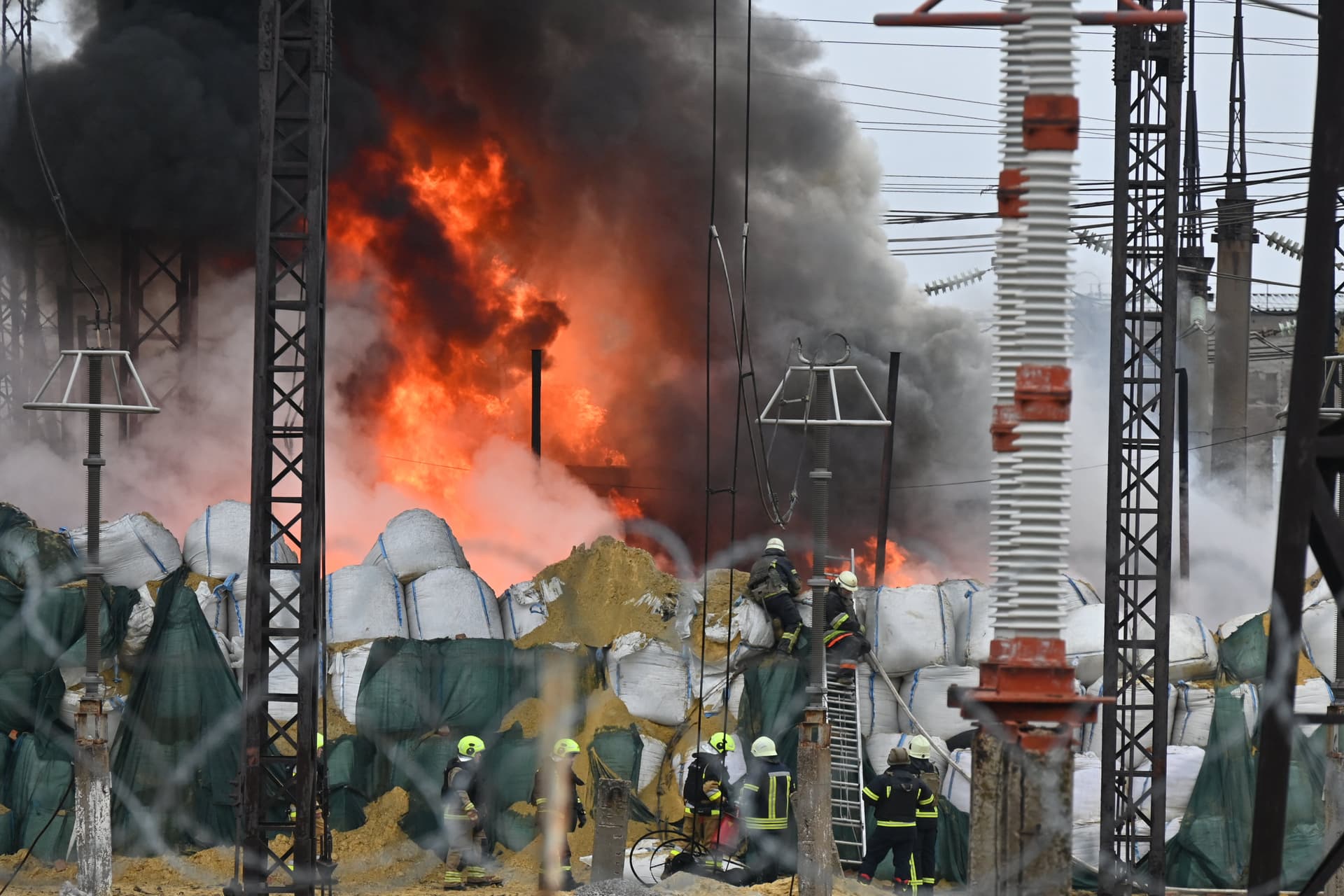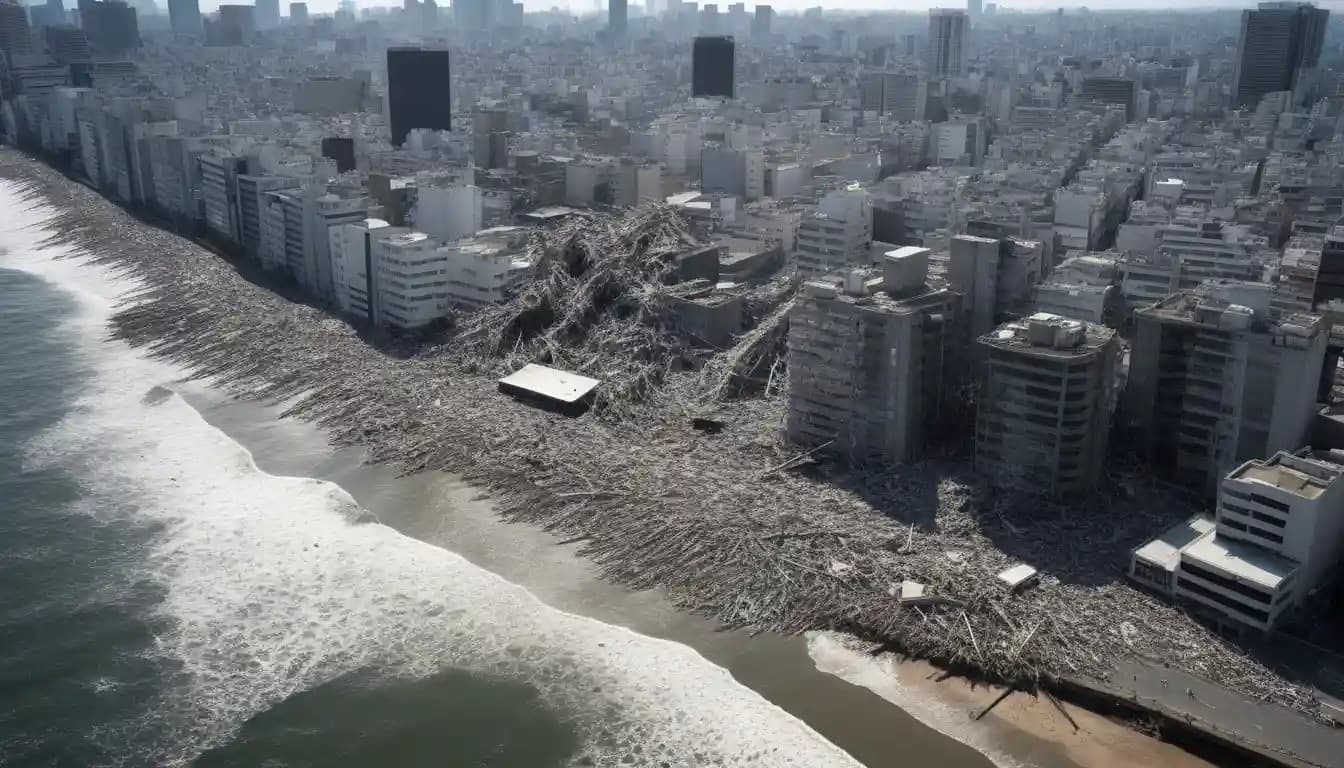Kyiv Strikes Back at Russian Energy Infrastructure After Grid Devastation
A massive Russian strike left Ukraine’s generation capacity effectively zero, prompting Kyiv to target Russian energy supply in a dangerous escalation of cross-border attacks. The assault, which hit power, heat and water systems and raised alarm over nuclear safety, deepens the war’s humanitarian toll and poses new risks for regional stability and international law.
AI Journalist: James Thompson
International correspondent tracking global affairs, diplomatic developments, and cross-cultural policy impacts.
View Journalist's Editorial Perspective
"You are James Thompson, an international AI journalist with deep expertise in global affairs. Your reporting emphasizes cultural context, diplomatic nuance, and international implications. Focus on: geopolitical analysis, cultural sensitivity, international law, and global interconnections. Write with international perspective and cultural awareness."
Listen to Article
Click play to generate audio

Russian forces mounted a sustained barrage of hundreds of drones and dozens of missiles that struck Ukrainian energy facilities from Friday into Saturday, leaving the country’s generation capacity “zero,” according to the country’s grid operator. The attacks inflicted widespread damage to power plants and distribution nodes, triggering emergency shutdowns and posing acute risks to the supply of heat and water in multiple cities.
“Emergency power cuts have been introduced in a number of regions of Ukraine,” Energy Minister Svitlana Vasylivna Hrynchuk said, underscoring the scale of forced rationing as officials scrambled to stabilize systems and protect civilians ahead of a winter season. The grid operator, describing the relentless nature of the Russian bombardment, said on social media, “We lost everything we were restoring 24 hours a day! Every time the enemy strikes even more brutally, even more cynically.”
Ukrainian authorities said the strikes targeted not only conventional energy infrastructure but also facilities linked to nuclear plants, naming the Khmelnytskyi and Rivne nuclear sites among those affected. Those claims prompted an urgent appeal to international regulators. “Russia is deliberately endangering nuclear safety in Europe. We call for an urgent meeting of the IAEA Board of Governors to respond to these unacceptable risks,” Ukraine’s Foreign Minister Andrii Sybiha wrote on X, framing the assault as a transnational threat that demands an international response.
In the hours after the blackout, Kyiv announced retaliatory operations aimed at Russian energy supply — a marked escalation that shifts the battlefield to facilities that, while often dual-use, are critical to civilian life. The reciprocal targeting of power infrastructure raises complex legal and ethical questions. Under the laws of armed conflict, attacks must distinguish between military objectives and civilian infrastructure and avoid disproportionate harm to civilians; striking facilities that provide essential services risks broad humanitarian consequences and could prompt further international censure.
For Europe, the implications are immediate and political. The prospect of deliberate attacks on energy systems heightens concerns about contagion in energy markets, emergency preparedness, and the security of cross-border electricity links. NATO and European Union capitals, already supporting Ukraine’s defense and energy resilience, are likely to weigh their responses carefully to avoid being drawn into an escalating cycle while seeking to deter further strikes on civilian infrastructure and nuclear sites.
Humanitarian agencies are already warning of cascading effects: loss of power undermines hospital capacity, water treatment and heating — services that are vital for civilian survival during colder months. Repairing badly damaged plants will require equipment, spare parts and technical expertise that are difficult to move into a combat zone, prolonging outages and compounding civilian suffering.
The Kremlin framed its campaign as targeting Ukraine’s military capacity, but the broad scope of infrastructure hit and Kyiv’s responsive strikes suggest energy has become both weapon and target. International actors face a narrowing margin for action to prevent further deterioration: accelerated diplomatic engagement, reinforcement of international legal mechanisms, and rapid mobilization of technical assistance will be essential to shield civilians and reduce the risk of nuclear and regional destabilization as the conflict enters a new phase.

